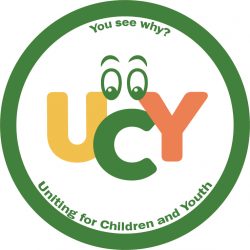Question 3 – Zone 10 Responses
Contents
The Question in brief
Responses from:
– Erica Braunovan
– Wesley Campbell
– Justin Laku Sr.
The Question in Brief
This question comes from Charlotte Dwyer and Ny Holmes, two Grade 11 Ottawa secondary school students who recently organized Nepean High School’s successful walkout against Ford’s changes to the curriculum.
Their Question
What steps are you going to take to ensure that students feel they are heard in regards to their involvement in THEIR curriculum?
Erica Braunovan
Student voice is extremely important. I am proud to be the Trustee member on the Student Senate and the Mentor for Student Trustees. These roles put me in contact with student leadership and let me hear directly from students in our district.
I was proud to see students across the OCDSB join students across the province and ensure their voices are heard.
Wesley Campbell
I think it’s great this question comes from students themselves. I was not a fan of this government’s position to roll back the curriculum. The great thing about time and education is we generally learn more the longer we go so it rarely makes sense to go back.
As to how to make sure students feel heard I would encourage student input on both an individual school level and a district wide level, much like a union with demand setting when they go to a bargaining table I would encourage students to put forth wants/needs based on the votes of the students. I would gladly bring this to the board to try and put forth constructive change annually.
This level of education is going to set our students on full lifetimes of achievements and I feel that students should be involved in making it a better place of study, a better place to create community, and a better place to learn how to affect positive change around them.
Justin Laku Sr.
This is to confirm receipt of your e-mail regarding two Grade 11’s who organized their school’s successful walkout to protest recent changes in the curriculum; reverting health curriculum (2015); cyber-safety; sexuality; gender identity; Truth and Reconciliation which aimed to improve Indigenous education in Ontario schools.
I would like to congratulate you and your colleagues for exercised your civil rights for taking time out of your busy schedule and demonstrated that you are tomorrow’s leaders who deserve the opportunity to exchange ideas with the outgoing today’s leaders. Not only that you are tomorrow’s leaders, but you should be in the driving seat, not passengers’ seats.
I commend you for keeping freedom’s light burning in your school. Please, keep good work up!
Regarding your question:
The 2015 curriculum about the Ontario Health and Physical Education is great for students as well as it supports each student to reach his/ her’s academic potential.
Absolutely, history is an important part of the learning process and is vital in student’s lives. To understand the future, history is very important in shaping one’s mind and views about the country he/she lives in. Yes, I fully support the introduction of Indigenous peoples and Afro-Canadians histories into Ontario education curriculum.
Furthermore, Truth and Reconciliation which aimed to improve Indigenous education in Ontario schools is an excellent program for students to learn about the dark history of our country, specially our brothers and sisters who suffered inhuman treating in the residential schools.
I would like to propose basic conflict resolution tools be introduce in school curriculum. These tools are helpful for students and school administrations to resolve and prevent conflicts in learning environment as well as to engage students to be part of solutions.
Yes, it your right to be heard and it is a duty of care for us to listen to today’s students, because you are tomorrow’s leaders.
My strategy to bring about changes to old mindset (lack of effective listening to students) is to involve and engage, students, parents and community leaders in any matters related to students’ wellbeing and education.
Additionally, student should be consulted from the initial stage of policy development and should have input in the process of design to end, because, it is their future. I believe students have creative ideas and theirs new mindset will produce positive results that will effect changes in school system.
In nutshell, I wouldn’t support any changes that would endanger the wellbeing of our students in Ontario.
Please, rest assure if elected, I will do my best to put a motion to support student’s input and participation in school policy development.
Once again, thanks for very much for reaching out to me as well as shared your views on these important issues-keep the good work.
Should you have questions and concerns about education system in Ontario, please, feel free to write back.

